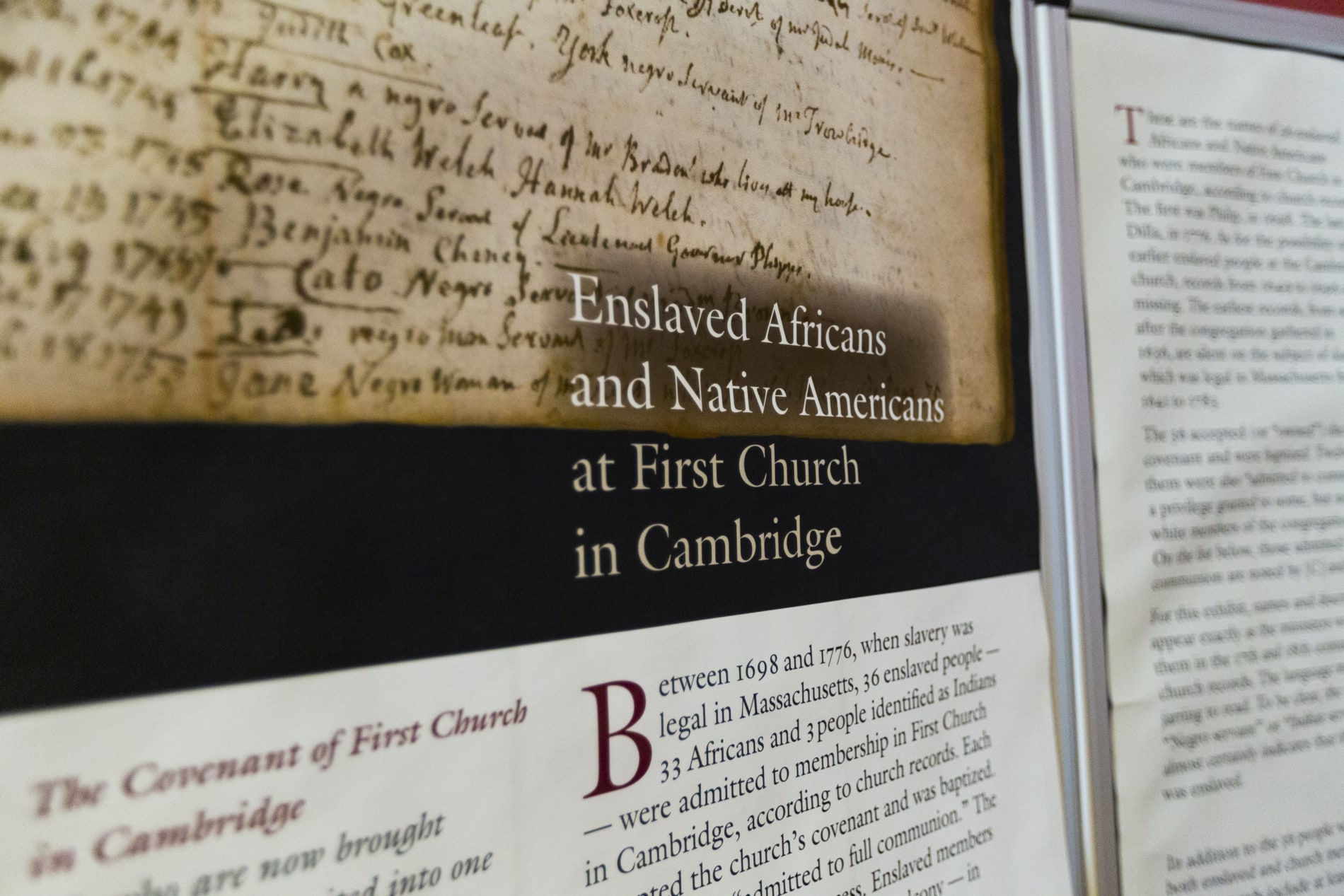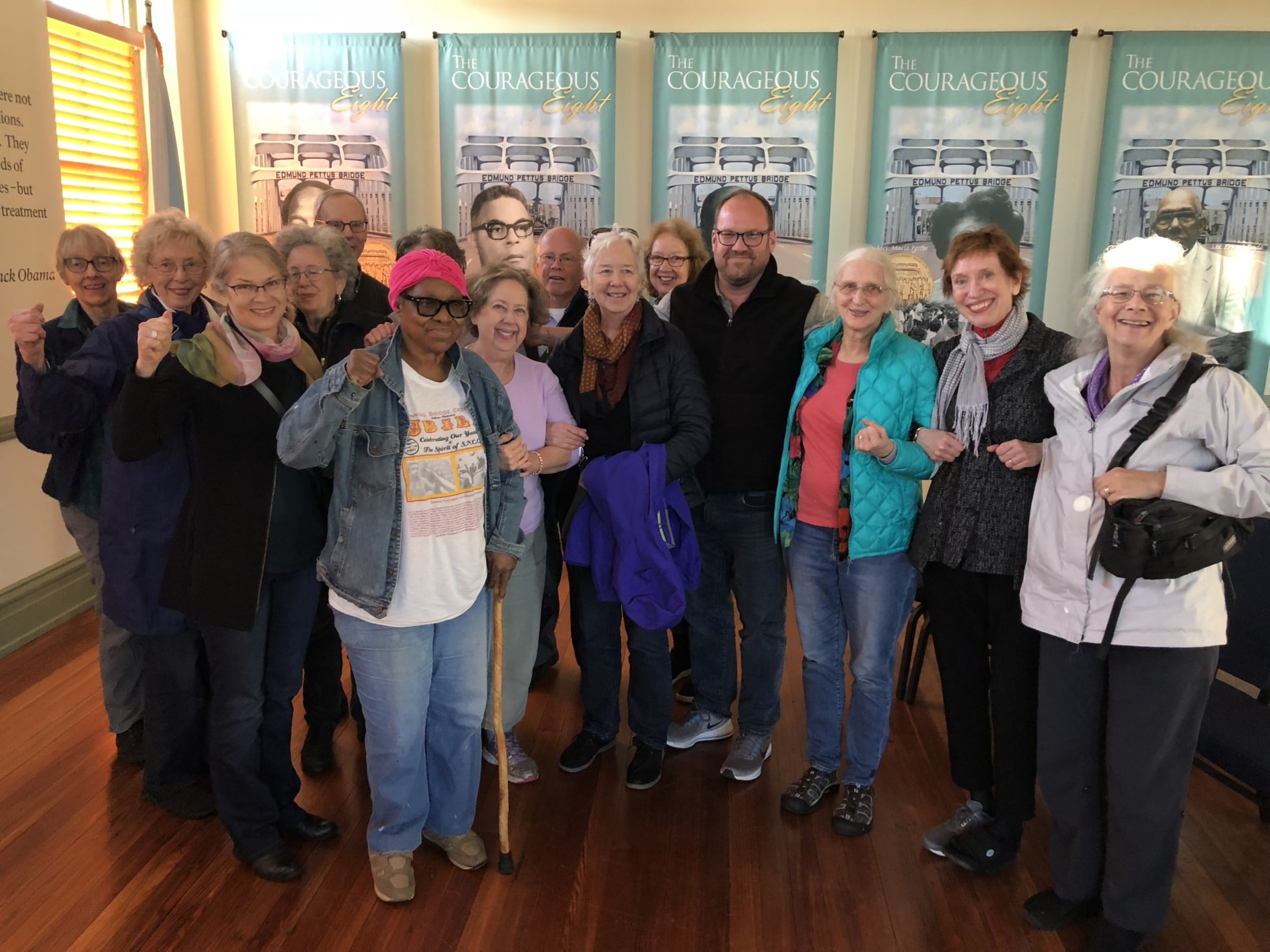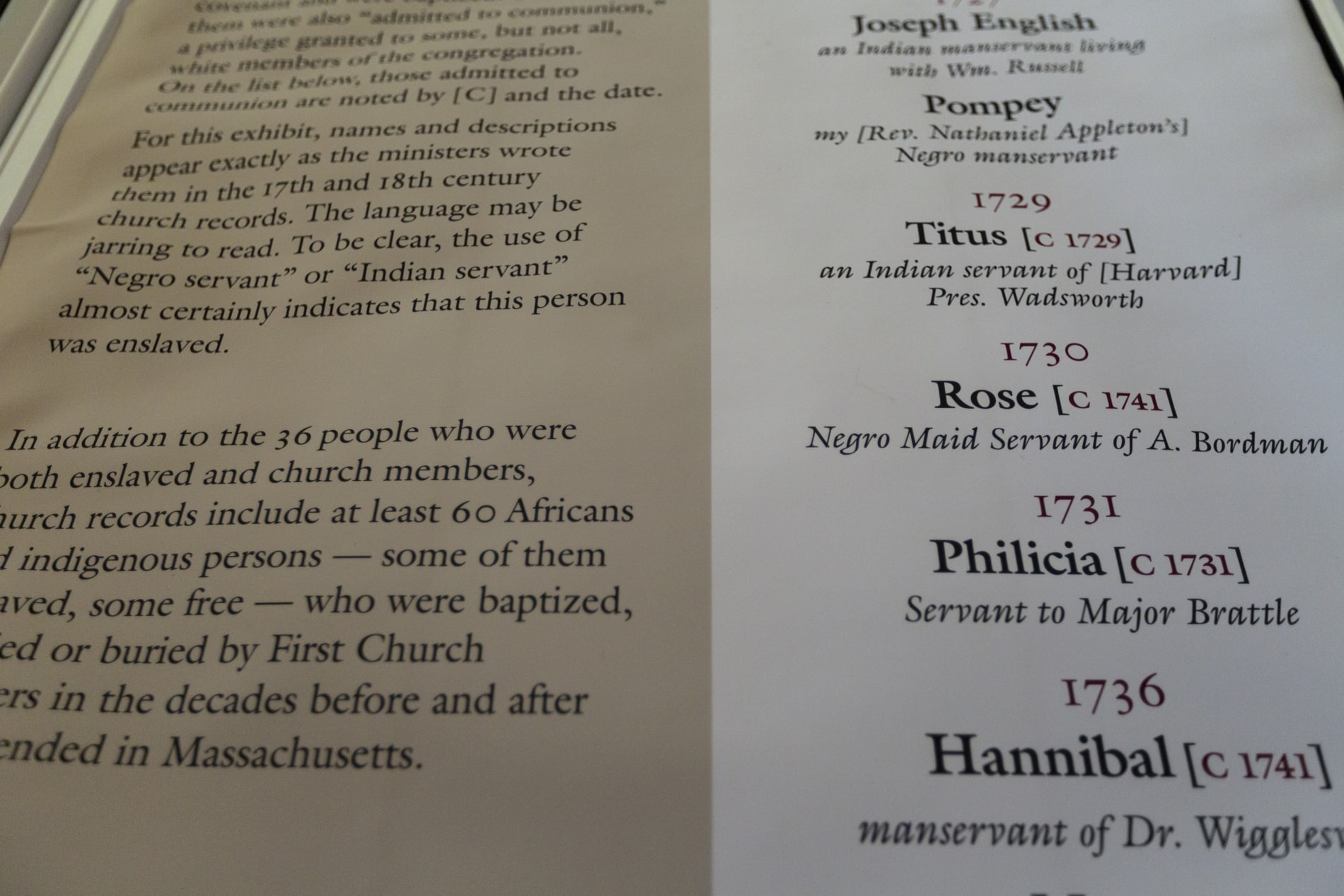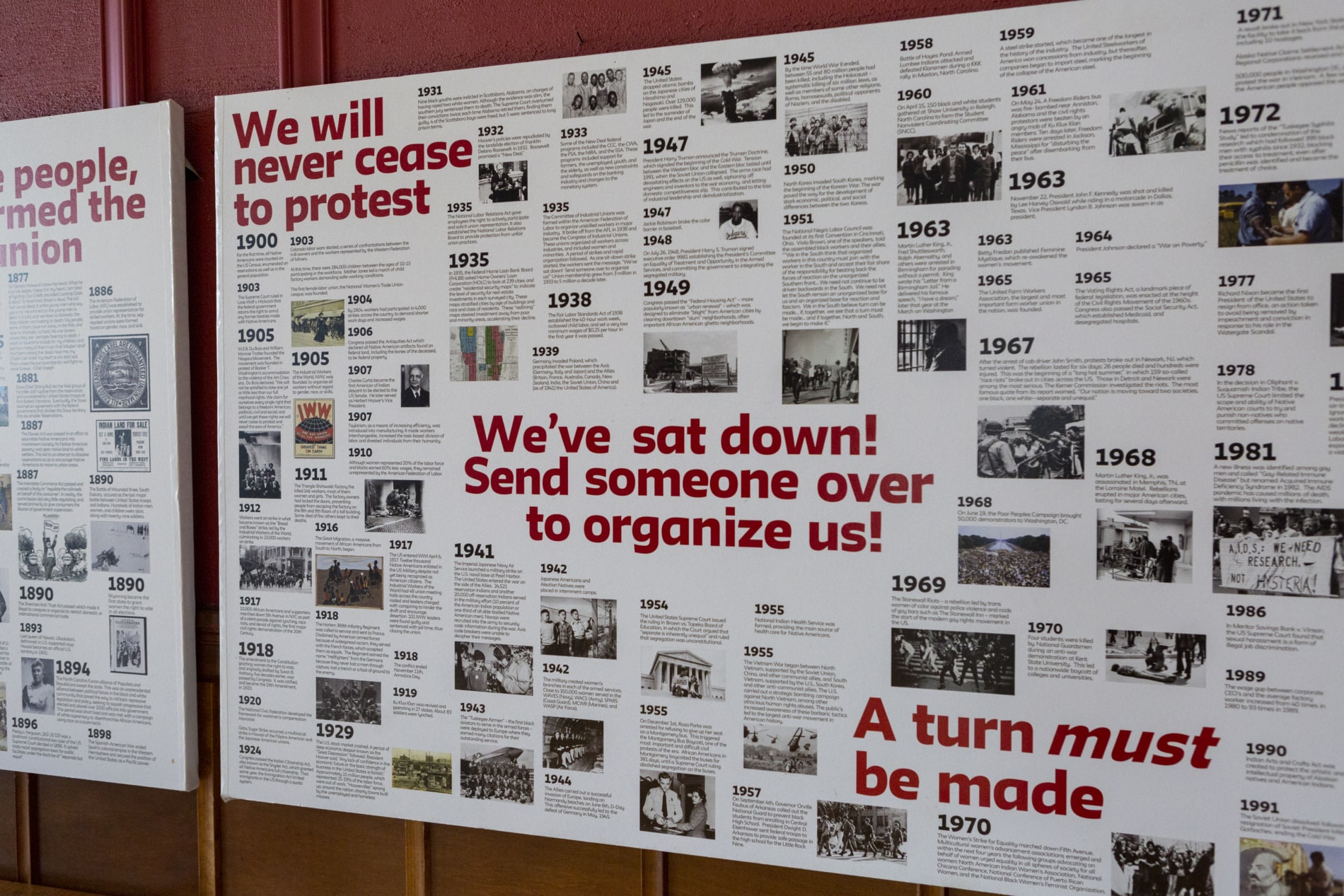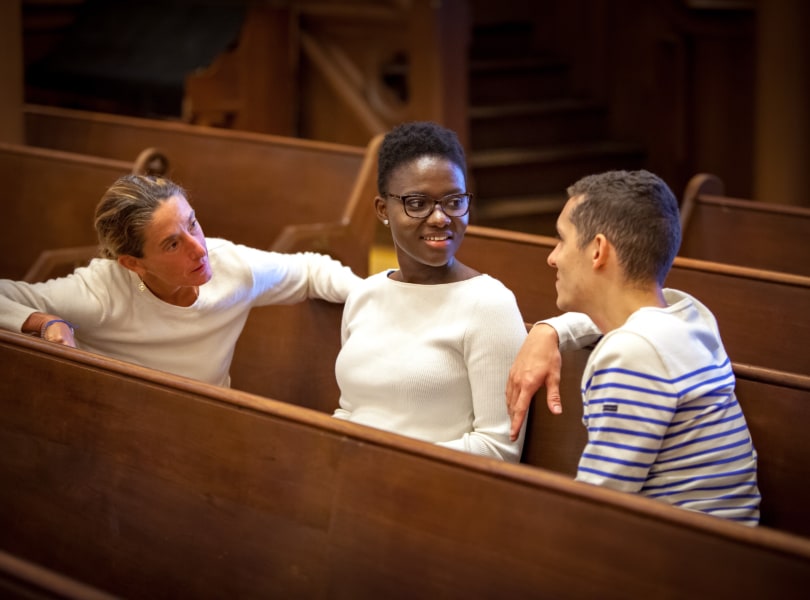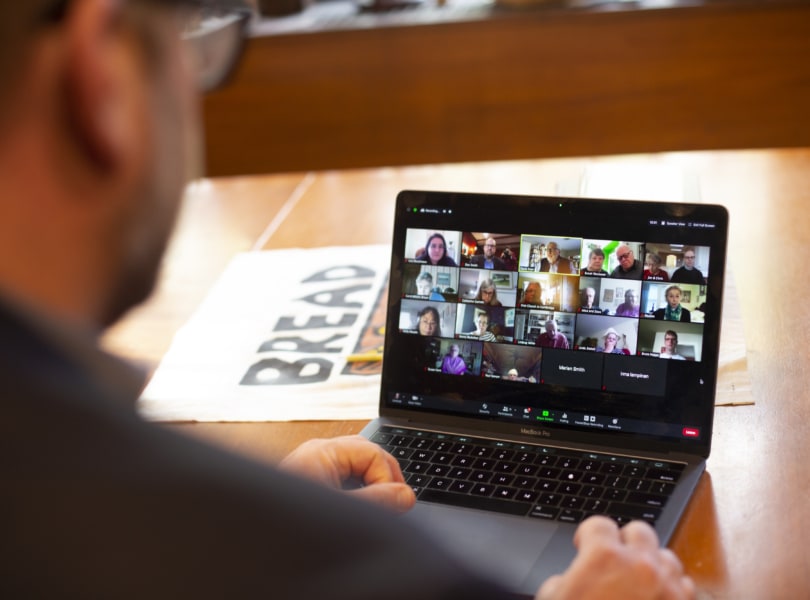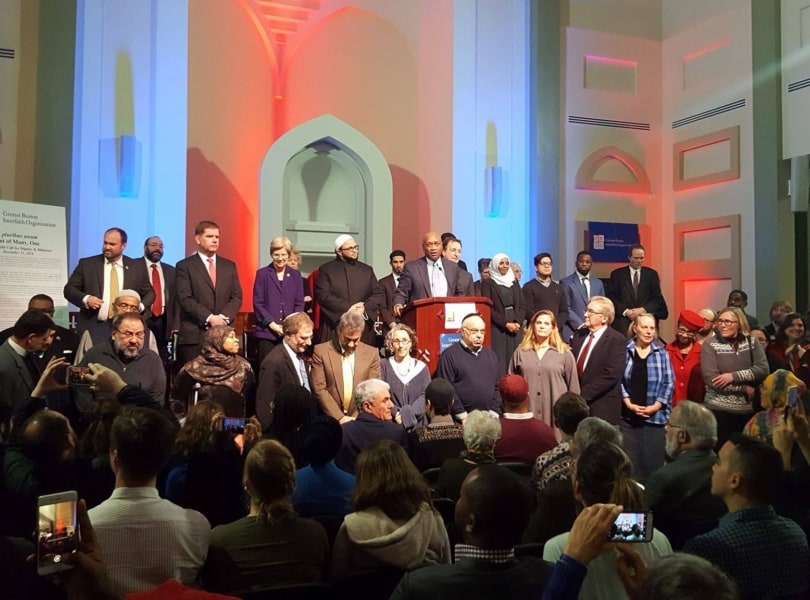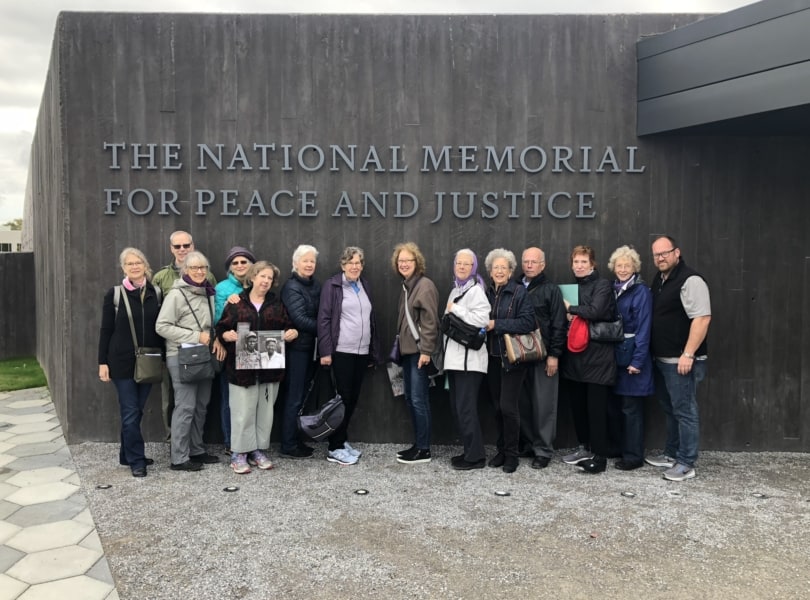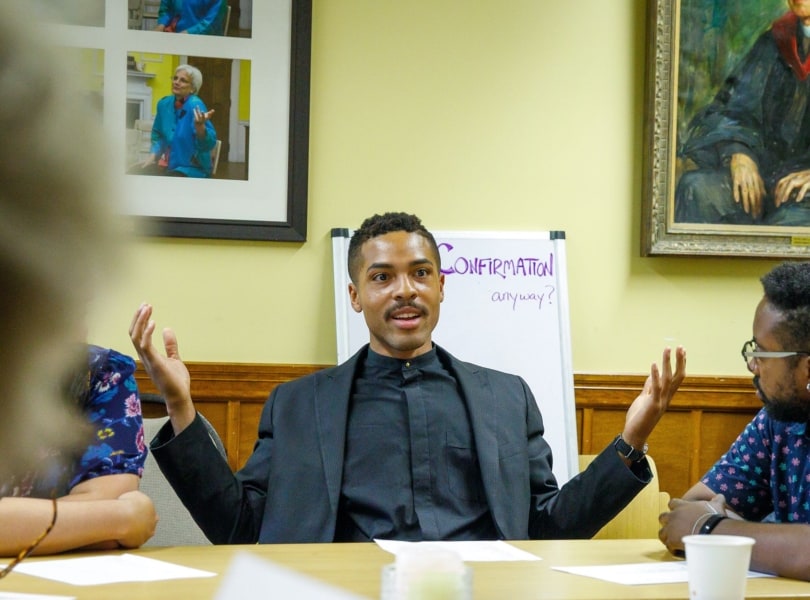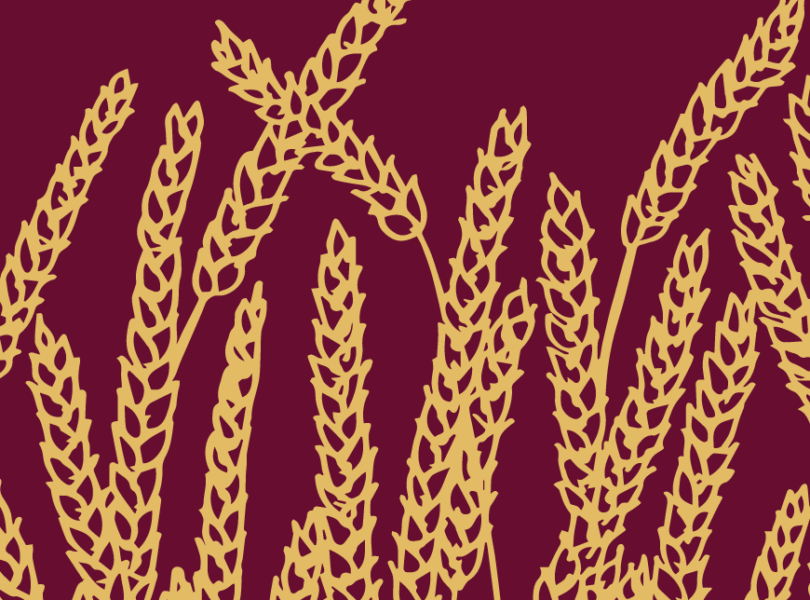First Church has been working to reckon with our history of enslaving persons of African and Indigenous descent and to learn about the harmful, inequitable living legacy of slavery and white supremacy in our church, city, and nation. We are asking how we can make reparation and work together to eradicate racial inequality in our lives, our church, and wider communities. For over 10 years, and especially since our discovery of over 36 names of enslaved persons on our membership records in 2011, we have been on a journey marked by 4 interwoven streams of work.
Please click on the drop-down menu below to explore more.
Deepening vision and commitment
- We have been moving from a small group of committed leaders to a 2021 congregation-wide Vision for Being an Anti-Racist Church which has made racial justice a core of our ministry.
- We are asking our committees and leaders to examine how characteristics of white supremacy culture pervade our First Church institutional culture and to identify and act on near and long-term action steps for antiracist transformation in all corners of church life and leadership.
- A team has identified benchmarks that we hope will help us learn how to best support and encourage increasingly diverse congregational staff and leadership.
Ongoing learning and study
- Through several First Church-led pilgrimages to Memphis, Birmingham, Selma, Montgomery, DC, and local sites, we have learned from embodied experiences in the places where events in our country’s history occurred. See photos and itineraries here.
- Through many book groups, bible studies, and film series on slavery, systemic racism, decolonization, and white supremacy, we have been learning from historically marginalized voices. Some recent highlights include:
- Reparations: A Christian Call to Repentance and Repair by Duke Kwon and Greg Thompson Book Study
- Doctrine of Discovery Learning Session
- Discussions of Stamped (for Kids): Racism, Antiracism and You by Ibram Kendi
- Repentance and Repair: Making Amends in an Unapologetic World by Rabbi Danya Ruttenberg Book Study
- Why We Can’t Wait by MLK Jr. Book Study
- Jesus and the Disinherited by Howard Thurman Book Study
- The 1619 Project Study Group
- Given First Church’s own legacy of slavery and historic ties to Harvard, Rev. Dan Smith was invited to be part of a faculty committee guiding the Harvard and Legacy of Slavery Initiative, which released a 137-page report and recommendations in 2022. Since that time, Dan Smith and other Harvard Chaplains have been leading Harvard and Landscape of Slavery tours for Harvard faculty, staff, students, and members of the wider community as well.
Remembrance and ReparationS
How do we publicly remember and share these stories alongside communities that have been most harmed? How do we repent, relinquish, and repair? Here are some recent examples.
- Juneteenth Observances For several years now, we’ve read aloud and honored names of enslaved and shared litanies of repentance, usually at our Juneteenth services and programs.
- Focus Groups. Following a period of intensive learning together and reckoning with our congregation’s history, First Church conducted focus groups with community members who have been most impacted by White Supremacy in order to hear their perspective on how to best offer repair and reparations. Karlene Griffiths Sekou presented her focus group findings in a written report and in an after-church Zoom session that can be found here. She also led a follow-up discussion that can be found here.
- Wade in the Water Fabric Art and Community Engagement Project In January 2023, we launched Wade in the Water, a fabric art and community engagement project to remember and honor enslaved persons on our records. The advisory team has included Egypt Lloyd, a descendant of Cuba Vassal, Paula Paris(Black History Cambridge), Marieke VanDamme (History Cambridge), Sarah Fujiwara, Carol Anne Grotian, Gail Willett, a local fabric artist, Laurie Williams, Sarah Higginbotham and Dan Smith.
- Land Acknowledgement. At our Annual Meeting on January 31, 2022, and after two years of research and learning from members of local Indigenous communities, First Church approved a First Church land acknowledgment which we now share regularly at First Church worship, meetings, and events.
- Hosting Public Workshops and Discussions on Reparations In September 2022, First Church was invited to co-host a panel with Cambridge NAACP entitled Cambridge: Envisioning Reparations with Cambridge with Ken Reeves, Richard Harding, Irene Monroe, and Kris Manjapra. Mayor Siddiqui and some city councilors attended. In the Fall of 2023, we hosted a Cambridge-wide workshop on The Spiritual Practice of Reparations led by national reparations movement leader Dave Ragland. In the Spring of 2024, we hosted a workshop on how the City of Cambridge is approaching reparations and pathways to repair harm from the racial caste system.
- Reparations Fund. In June of 2021, and as an outgrowth of the focus groups mentioned, our Executive Council approved the creation of a First Church Reparations Fund which has since distributed over $100,000. In 2024, we revised the guidelines of our Reparations Fund. We are also working with a growing number of local, statewide and national partners to advance public conversations and initiatives of reparative action. Read more about our reparations efforts here.
Spiritual transformation
We are on a journey to ground this work in our faith, prayer and in how the Holy Spirit can transform us individually and collectively. How has our spiritual practice and awareness changed us?
- During COVID-19, over 25 members attended several cycles of our weekly Call to Return: Spiritual Reflections on Racial Justice spiritual formation sessions.
- For the past 3 years and counting, we have been joining members of the Pentecostal Tabernacle Church in Central Square for weekly Biblical Justice Prayer calls.
- We are including more diverse music and visual representations in our worship life and sanctuary. Advent and Lenten banners include artist depictions of Mary and Jesus as persons of color. In addition, we held a recent exhibit of portraits of Robert Shetterley’s Americans Who The Tell the Truth project, followed by a second year of additional portraits and accompanying education and discussion hours on these Truth Tellers.
- See here for a summary of some of our shared learnings so far on this forever journey toward racial justice and healing.
OWNING OUR HISTORY
First Church has begun to acknowledge and wrestle with our historic complicity in slavery. Our congregational records reveal that at least 36 persons (33 Africans and 3 Indigenous persons) were enslaved by First Church members and clergy between 1698 and 1783. After slavery in Massachusetts was abolished in 1783, First Church was largely silent on the great questions of slavery, abolition, and emancipation through the Civil War and Reconstruction. We are currently engaging people within and beyond our congregation and across racial and class lines to discern together how we can publicly remember and honor the lives of enslaved persons who were part of our community while also acting to address the systemic racism in our lives, our church, and our city today.
OUR CURRENT WORK
No multi-year strategy or action plan will be sufficient to address the depth of work needed on our individual and collective journeys toward racial justice, healing, and liberation. Our vision statement calls us each to take action immediately in our lives, church, and communities. What follows are a few recent steps that First Church is taking and planning. Please revisit this space regularly for updates.
Recently, our Beloved Community, Christian Formation, and Missions and Social Justice groups are teaming up to offer a range of opportunities to learn more about the living legacy of settler colonialism. We look forward to learning on our own and in conversation with members of local indigenous tribes. In the meantime, we invite you to set aside some time for reading and viewing on your own. Please consider the following suggestions: Reading Suggestions for more general antiracist reading include Dr. Ibram Kendi’s How to be an Antiracist and Layla Saad’s 28-day workbook White Supremacy and Me, with daily exercises and reflections for becoming an antiracist. Or see this growing list of antiracism resources including articles, films, blogs, and more. Invest We also encourage members to support, invest in and follow the lead of Black, Indigenous, and Persons of Color-led businesses, organizations, or protests, as you are able. Visit the Upstander Project. Watch the award-winning documentary, Dawnland, which First Church screened in 2019, and the short 9 minute film, Bounty about the Phips Bounty Proclamation, named after First Church member and Lt. Governor Spencer Phips. On October 3, 2021, First Church hosted a premiere of Bounty that was followed by conversation with Maine-Wabanaki Truth Commissioner gkisedtanamoogk (Mashpee Wampanoag) Upstander Project learning director Dr. Mishy Lesser. Watch the PBS Independent Lens documentary We Still Live Here – Âs Nutayuneân. This is the powerful “story of the revitalization of the Wampanoag language, the first time a language with no native speakers has been revived in this country. The Wampanoag’s ancestors ensured the survival of the Pilgrims in New England, and lived to regret it. Nevertheless, through resilience and courage they kept their identity alive and remained on their ancestral lands. Now a cultural revival is taking place. The story begins in 1994 when Jessie Little Doe, an intrepid, 30-something Wampanoag social worker, began having recurring dreams: familiar-looking people from another time addressing her in an incomprehensible language. Jessie was perplexed and a little annoyed — why couldn’t they speak English? Later, she realized they were speaking Wampanoag, a language no one had used for more than a century…” Learn about the Doctrine of Discovery by viewing this United Church of Christ webinar entitled What is the Doctrine of Discovery and this talk by scholar Robert Williams entitled Savage Anxieties, Part I (starting at 6:50-32:45). Visit the North American Indian Center of Boston (NAICOB) website and learn about current legislative priorities and other opportunities for engagement Visit the Native American Resource Information page at The Commonwealth of Massachusetts’ Commission on Indian Affairs Explore this extensive list of further Indigenous Allyship Resources What follows is our Vision for Being an Antiracist Church. The language of this vision and the action that it prompts are an ongoing ‘work-in-progress,’ and we will be integrating feedback, new ideas, and learning along the way of this lifelong journey of faith and justice. First Church in Cambridge commits to being an antiracist church. We reject white supremacy and racism in all forms and believe this work is our call to follow Jesus and exercise faithfulness to God. We commit to the spiritual practice of fighting racism; to ongoing reckoning with our history; and to transforming our personal, social, and professional lives by educating ourselves and intervening when harm is threatened or done. We repent of white supremacy culture, anti-Black racism, and all forms of racial hierarchy within our church, and we will uproot them. We are working to shift the harmful narrative of race and white supremacy that has too often been reinforced by distorted and destructive political, economic, and theological beliefs and structures. We commit to use, share, and relinquish whatever power and privilege we may have to dismantle systemic racism in our wider community by joining the struggle alongside other antiracist organizations, centering the voices of those who have been traditionally silenced or oppressed, and following the lead of Black and Indigenous people and all People of Color. We commit to loving others and ourselves by affirming the dignity and beauty of all human beings, who are created in the loving image of God. We commit to welcoming and building relationships across cultural, ethnic, and racial differences. We do this work because the spiritual health and positive transformation of our church, our community, and our nation depends on it. We do this humbly, with courage, in fellowship with our neighbors, and relying on God’s grace to shepherd us towards a just, equitable, and peaceful world.Learning on Your Own
OUR VISION FOR BEING AN ANTIRACIST CHURCH
